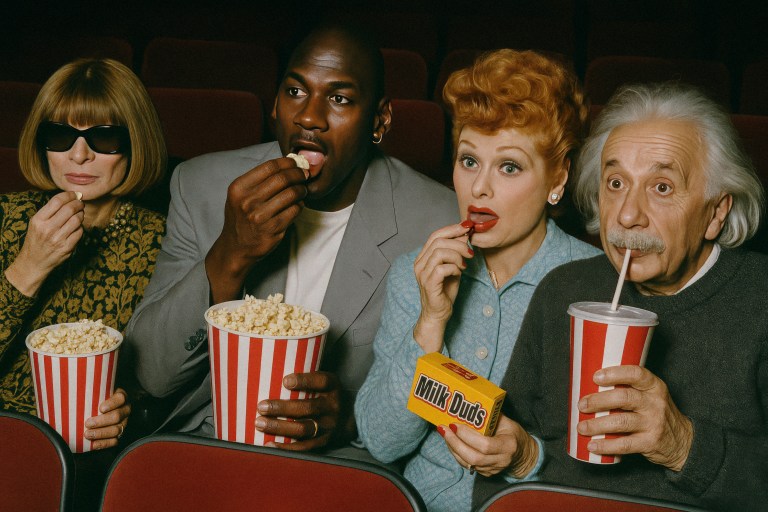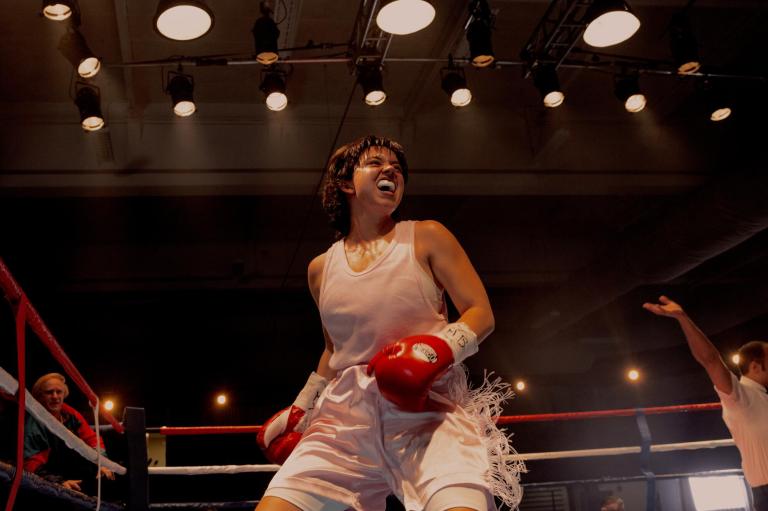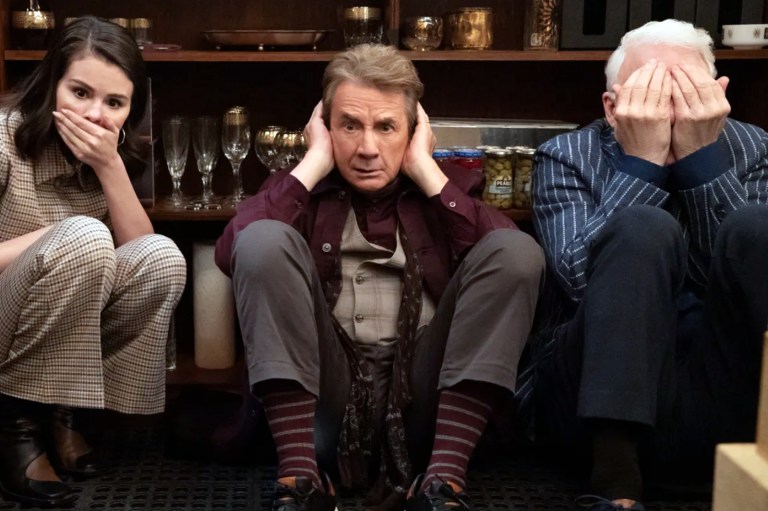
‘Fair Play’ Exposes How Romances With Envious Narcissists Become Deadly Power Struggles
Netflix’s new psychological thriller “Fair Play,” written and directed by Chloe Domont, sheds light on the role that misogyny, gender roles, and even narcissism play in modern romantic relationships and the workplace, turning would-be whirlwind romances into destructive power plays. The initially steamy and sultry dynamic between colleagues Emily (played by Bridgerton’s Phoebe Dynevor) and Luke (played by Alden Ehrenreich) dramatically shifts when Emily is rewarded a promotion instead of Luke at the cutthroat hedge fund they both work at, One Crest Capital. This presents a damper on their relationship as Luke becomes envious and threatened, feeling visibly emasculated by Emily’s newfound power and position as his boss. In a series of escalating events, what was once a romantic engagement transforms into a chaotic bloodbath. Instead of being a supportive partner, Luke attempts to sabotage Emily and – spoiler alert – inevitably fails in spectacular fashion.
Fair Play Subverts Gender Roles
“Fair Play” effectively toys with gender tropes and stereotypes as it places Emily in power. After Emily is promoted instead of Luke, she’s the one who struts into the office and places her briefcase on her new desk with the best views. She’s the one who comes home stumbling drunk after a night out with the boys and going to the strip club with her male colleagues, throwing dollar bills at the strippers and exchanging lewd sex stories for some good old “male bonding.” She’s the one seen canoodling with her fellow employees, getting a bit too touchy-feely for Luke’s comfort and making him feel insecure about his position in their relationship as well as his status in the workplace. She’s the one picking up late night work calls during sex. This inverts the usual tropes and displays of masculinity we are used to seeing in the workplace and romantic relationships, showing us what traditional “masculinity” looks like when it is embodied by a woman, even if she is feminine-presenting. Yet Emily is also surrounded by the rampant misogyny in her toxic workplace, which reminds the viewer that no matter how powerful of a role she inhabits, she will still be “reminded” of her “true” place in society – whether it’s her boss outrightly calling her horrifically demeaning names when she’s lost the company money or her male co-workers laughing about the prospect of her sleeping her way to the top. Although her boss does not exploit her sexually, Emily learns that she is only there to profit him and will be demeaned and abused when she makes a mistake in ways her male colleagues won’t be.
Narcissistic Abuse and Malicious Envy
The misogyny and narcissistic envy Emily encounters in the workplace is only augmented by the sabotage she experiences in her romantic relationship with Luke. Luke begins covertly insulting her in an attempt to make her feel less confident and deflated in her new position after initially pretending to be happy for her with a pained, half-hearted congratulations. Narcissists can be male or female, but there is a certain way misogyny can present itself when it comes to male narcissists. According to researchers, narcissism in men is linked with hostility toward heterosexual women (it’s possible this shows up as more internalized misogyny in narcissistic women, though further studies need to be conducted on narcissistic women). Both male and female narcissists can experience malicious envy which compels them to try to sabotage others due to their resentment.
Luke’s escalating aggression and reactions to Emily’s success throughout the movie represents an age-old double standard. When a man gets promoted, his romantic relationships generally thrive and his romantic options get enhanced. When a woman gets promoted, unless she has a high-quality and secure partner, she is often punished (this is supported by numerous studies) by society and by her romantic partners, especially if her partner is narcissistic. Whereas men are expected to be and celebrated for being breadwinners, a successful woman usually has to sacrifice some aspect of herself, forced to “choose” whether she wants to invest in her career or a romantic relationship, often with a partner who wants her to dim her light.
Emily notes this double standard with precision when she identifies how she lovingly had sex with Luke when they both thought he was the one getting promoted – whereas Luke actually withholds physical affection and emotional attention away from her when she’s actually promoted. For a woman, getting a promotion or achieving a higher level of success than her partner is depicted as a double bind: as something that, while enormously powerful, also has the power to deflate her. Emily actually apologizes to Luke for getting the promotion at all. Unlike Luke, Emily is conditioned by society to feel ashamed of her achievements rather than celebrated, wary that her accomplishments could affect her romantic relationship negatively and make her seem less desirable to men who feel threatened by her – which it often does due to societal double standards and misogyny.
You see Luke berate Emily throughout the movie for daring to succeed in disturbing ways, causing her to tiptoe around her newfound success and focus her attention on Luke’s escalating tantrums. He first starts sneakily criticizing Emily, telling her she dresses like a “cupcake” and questioning the way she presents herself at work. These initial “microaggressions” become heightened as they become crueler and more callous throughout the movie. He deliberately withdraws and withholds from her sexually, seemingly feeling too emasculated to “perform” in the bedroom in response to her now being the breadwinner of the relationship. This is sadly a reality that many successful women encounter when they are with narcissistic or toxic partners – they sense their partner lose romantic attraction as they become more successful not because there’s anything wrong with them, but rather because their partners possess a toxic mindset about who “gets” to be successful. Rather than an equal partnership, narcissists are interested in being – and remaining – on top, and will go so far as to devalue and sabotage their partners in doing so. This can include tactics such as depriving them of sleep before big interviews or exams with crazymaking arguments, spreading rumors or gossip that harms their reputation, isolating them from career or financial opportunities, or belittling their abilities and natural talents.
Double Standards About How Successful Women and Successful Men Are Treated Are Exposed
Instead of celebrating her career like many women would celebrate their partner’s, Luke accuses Emily of getting everything handed to her and using her sexuality to get to the top. This is despite the fact that Emily’s boss believed she was the best person for the job with the most accomplishments, even going so far as to mention her publication in the Wall Street Journal at a young age. In contrast to Luke’s disparaging behavior toward her, Emily actually tries to help Luke get promoted, trying to depict him in a positive light to their boss. This is reminiscent of many modern relationships: women generally put in a lot of labor “building” up their partners, even when these partners are not happy or supportive of their success and do not reciprocate. While Emily is frightened by her own success, afraid that it will emasculate Luke and feels compelled to help him, Luke is vindictive and jealous.
When she playfully jokes to Luke, “I promise to help you with your career if you promise to {do this sexually},” jokingly flipping usual gender tropes upside down, Luke harshly condemns her and bullies her in return, saying, “You don’t look like one of the boys. You look like the hooker they paid to keep them company.” In a display of absurd resentment, you see Luke do numerous push-ups and sit-ups in an attempt to reclaim his sense of masculinity, take coaching classes, rage at Emily accusing her of “stealing” his promotion and try to assert his dominance as he feels diminished – rather than doing the inner work to improve himself and his toxic mindset in genuine ways. Instead of finding a productive way up the corporate ladder, he blames her for his lack of success. He habitually minimizes her hard work and pretends she only got her position due to her looks. His atrocious sense of entitlement and heinous accusations at Emily are a projection of his own shortcomings. These rage attacks are consistent with how envious narcissists behave in relationships and in this movie, they are supported by patriarchal power dynamics.
The Movie Starts With Blood And Ends With It
During a poignant moment in the film, Emily pleads with Luke to be happy for her, asking him why he can’t just look past his ego to do for her what she has done for him – support her. At the end, however, he is only able to feel like he has re-established his “masculinity” in violently domineering ways. This is illustrated most brutally during their engagement party, where he begins to assault Emily while they’re having sex, ignoring her pleas for him to stop. Emily, however, does fight back throughout the film, reacting to his abuse with domination of her own. When Luke tries to publicly humiliate her by telling everyone at work she was sleeping with him, she flips the story and tells her boss he is an obsessed stalker rather than her fiancé. When Luke cuts her down with horrifying verbal abuse at their engagement party, accusing her of sleeping with her boss using vivid, crude descriptions in front of her friends and family, Emily responds by breaking a beer bottle over his head.
It is interesting that the movie begins with a taboo scene of Luke’s face smeared with Emily’s menstrual blood during a bathroom rendezvous while he is “servicing” her, only to end with head injuries, bruises from assaults, and bleeding arms. Perhaps this visual trajectory is a commentary on how well Emily is treated when she is still inhabiting a traditionally feminine role – comforted and pleasured by her partner, all the way to the tumultuous power struggle that erupts when she “dares” to defy her role in the relationship and outperform him. At the same time, such a visual may also be foreshadowing the darker violence that takes place near the end. It could be interpreted as Emily as the “dominant” partner “receiving” rather than the stereotypical emphasis on male pleasure, a dominant role that is challenged and reinforced throughout the film. Emily’s blood might also simultaneously and paradoxically represent the traditional feminine role of passive suffering. But in the end, it is Luke who is left bleeding, begging for forgiveness and told to “clean” up his “mess” taking on the domestic duty stereotyped as a woman’s duty. It is Luke who is told to get on his knees, inverting his crude claims that Emily needed to get on her knees to get a promotion. This is yet another subversion that flips gender roles on its head and is thrilling to audiences who are captivated by ruthless feminine rage not often captured on screen.
Emily Is A Woman In Power – In More Ways Than One
Scenes like the movie’s ending are possibly what makes viewers who are accustomed to seeing aggressive men in film flinch when they see a woman inhabiting the same role. It is what makes the film so ultimately polarizing: Emily doesn’t take abuse quietly or turn the other cheek like “good women” are expected to do. Although she wavers throughout the film on whether to walk on eggshells trying to shrink herself for her partner, she finally chooses herself and owns her new position of power much like a “man” stereotypically would – with brutal force. She says, “You tried to ruin my job, my reputation…I want you to get on your fucking knees.” Because she is also the victim of chronic abuse, many viewers may find this scene cathartic. This final scene is both chilling and satisfying, with Emily brandishing a knife at Luke to make him apologize to her for raping her. She makes him beg for her mercy and tells him to wipe the floor that is still filled with his blood and get out. She leads him to believe that she wants to hold him accountable for the purpose of repairing the relationship: once she is satisfied that he has surrendered, she kicks him out. One viewer may see a woman (albeit somewhat destructively) empowering herself after taking figurative punch after punch from her abusive partner; another viewer who is not as well-versed in the dynamics of abuse may mistake this as a struggle between two narcissists rather than one. Either way, both types of viewers are challenged to ask, “Why is it worse when a woman does it than a man?” when it comes to both aggression and success.
During this scene, Luke devolves from his aggression into seeming fragility as he sobs, confessing that he is nothing and will do everything to make the relationship work. This type of fawning behavior is usually portrayed in women working hard to maintain their relationships in most movies, but the roles are reversed here as well. Emily is the one who wants out for good; Luke is actually the one pretending to be macho and wants to fight for the relationship he himself sabotaged using pity ploys. However you may feel about this controversial film, it’s clear it has done what it has aimed to do: create a riveting dialogue about the different ways men and women demonstrate power in relationships and the workplace, and the double standards that women often have to grapple with when it comes to being the one in power.











